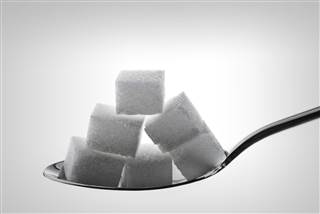Over the last several decades, certain foods have been vilified as being potentially carcinogenic, or capable of causing cancer. So which ones are the biggest culprits? And how can you eat to prevent cancer or reduce the chances of a recurrence if you’ve been diagnosed? Below are the foods at the top of the list of potentially cancer-causing foods:
Red and processed meat. Higher intakes of red meat, defined as beef, veal, pork, lamb and goat, and processed meats (meat that has been salted, cured, fermented, smoked or other processes that enhance flavor or improve preservation) have an association with an increase in cancer incidence and mortality according to many epidemiological studies. This relationship is believed to be caused by the presence of mutagens and carcinogens in the meat, which can react upon being cooked at high temperatures to create further carcinogenic compounds.
Sugar. An association between sugar and cancer has been established. For this reason, “any food which has a very high glycemic index” can increase your risk of cancer and should be consumed in moderation, says Dr. Adil Akhtar, associate professor in the department of medical oncology and hematology at Oakland University-William Beaumont School of Medicine and director of Inpatient Clinical Operations at Karmanos-McLaren Oakland Cancer Center in Michigan.
Alcohol. Alcohol is actually a type of sugar, so it’s also on the list of foods that can increase cancer risk. It is an established risk factor for mouth, pharynx, esophageal, liver, colorectal, breast and pancreatic cancer. Although it is not entirely understood how alcohol increases risk, but it’s possibly related to DNA damage incurred by the cells after exposure to alcohol.
Processed and packaged foods. Material lining many packaged foods, such as the insides of a microwaveable popcorn bag, have been suspected to be carcinogenic. Furthermore, ultra-processed food products also tend to be higher in calories, salt, sugar and saturated fats, all of which may contribute to obesity, which is a known risk factor for cancer.
To learn more, see the original article here.

